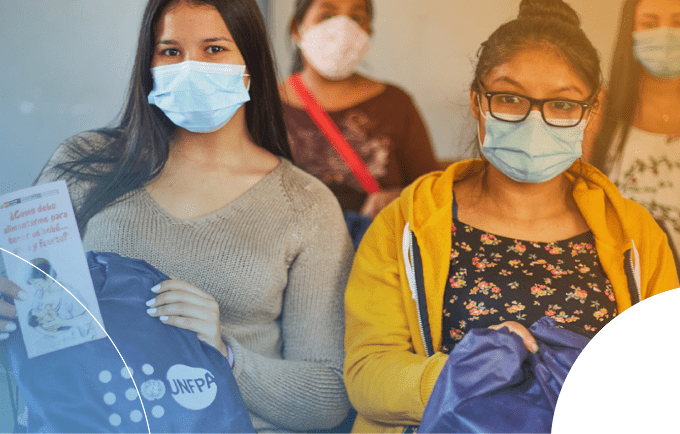Peru is the second largest destination of Venezuelan refugee and migrant women in the world. Official data reported that 861,698 people from Venezuela were living in the country at the
end of 2019 (National Superintendence of Migrations), of which 617,000 have been identified in a situation of socioeconomic vulnerability and without access to basic social services.
Girls, adolescents and women of this population group are particularly at risk of being victims of violence, either because they do not know they are entitled to protection services or they fear going to state institutions because of their migratory status, the lack of social support networks, their limited economic opportunities or the fear of discrimination.
During the COVID-19 state of emergency, violence against migrant and refugee women has not stopped. This year, the Aurora Program has reported 1019 cases of foreign nationals treated in the Women's Emergency Centers (CEM). The most recurrent forms of violence were physical (48.4%) and psychological (39.2%). Additionally, 72 cases of sexual violation of foreign women have been reported.
In this context, the United Nations Population Fund (UNFPA), within the framework of the strategic priorities set out in the Global Response for Coronavirus Disease (COVID-19) Pandemic, has continued to ensure multisectoral, life-saving services for migrant and refugee survivors of gender-based violence (GBV). The interventions on Tumbes, Piura, Lambayeque and San Juan de Lurigancho (Lima) have been the following:
- Remote attention for survivors of gender-based violence (GBV): the intervention focuses on providing psychosocial and socio-legal support, through telephone and chat, on the attention route for cases of GBV to migrant and refugee populations, as well as their host communities. These services are provided through our implementing partner, the NGO Flora Tristan.
- In coordination with the Ministry of Health, a donation of Personal Protection Equipments (PPE) has been made to ensure biosecurity conditions in the clinical management of cases of sexual violation, which includes the provision of the emergency kit (Emergency Oral Contraception, among others).
- As part of the communication strategy, messages on the prevention of gender-based violence and access to sexual and reproductive health services are being spread on community radios and commercial stations.
- The multisectoral coordination capacities of 80 operators of the services of protection against GBV in Piura and Lambayeque have been strengthened, in coordination with the Ministry of Women and Vulnerable Populations and the Ministry of Health.
- UNFPA, as a member of the Working Group for Venezuelan Refugees and Migrants (GTRM) in Peru, leads the GBV Working Area and is providing technical assistance in the development of Standard Operating Procedures (SOP) for the attention of migrant and refugee survivors of GBV, an important tool that adds effectiveness to existing routes in the country.
In addition, 3,300 hygiene kits (Dignity Kits) are being distributed to support the self-care and personal hygiene of migrant and refugee adolescent girls and women, and their host communities, an initiative that has proven to have a direct impact on empowerment, autonomy and mobility, favoring their possibilities to participate in economic and community activities.
In this way, taking into account that the health emergency caused by COVID-19 has a differentiated impact on women and girls, UNFPA Peru has continued to carry out interventions from a multisectoral, gender and intersectional approach, focusing on the needs of the survivors and always in articulation with key actors with competence in the prevention and attention of GBV, humanitarian organizations and civil society institutions, contributing to ensure that no one is left behind.


